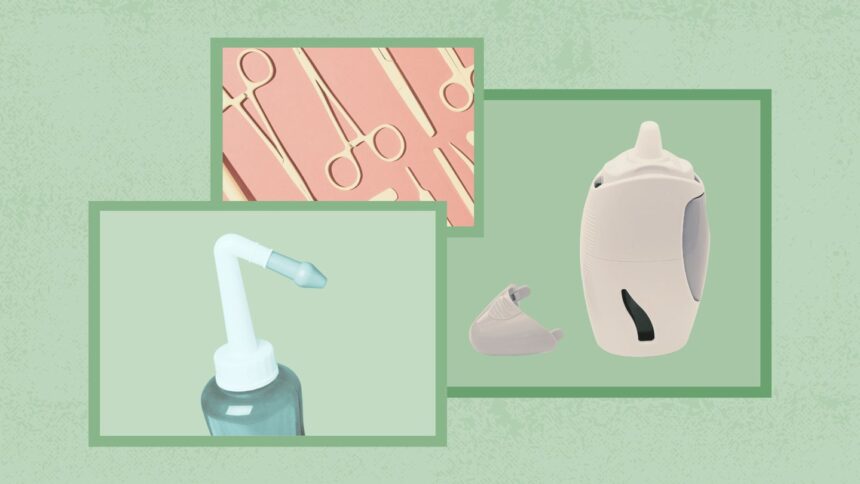Treatment
A number of treatment choices can be found to deal with nasal polyps.
Nasal Corticosteroids
- budesonide (Rhinocort)
- beclomethasone (Beconase AQ, Qnasl)
- ciclesonide (Omnaris, Zetonna)
- fluticasone (Flonase Allergy Reduction, Xhance)
- mometasone (Nasonex 24hr Allergy)
Nasal sprays typically require day by day administration to be efficient, which could be a downside, Schneider says. How lengthy and the way typically you’re taking nasal corticosteroids, in addition to the dosage, will depend upon the severity of your signs and whether or not you’re taking different drugs, he says.
Oral Corticosteroids
“Oral steroids are usually very efficient in shrinking polyps and enhancing signs,” Schneider says. “Nevertheless, the results may be short-lived, and steroids have severe unwanted effects, significantly when used long-term.”
- Fluid retention
- Hypertension
- Temper swings
- Weight acquire
- Upset abdomen
- Glaucoma
- Cataracts
- Rounding of the face (often known as “moon face”)
- Excessive blood sugar, which may result in or worsen diabetes
- Elevated threat of infections
- Osteoporosis and fractures
- Skinny pores and skin, bruising, and slower wound therapeutic
- Extreme fatigue, lack of urge for food, nausea, and muscle weak point
Make sure you talk about these unwanted effects along with your physician when deciding whether or not oral corticosteroids are the precise choice for you.
Biologic Drugs
The most recent therapy choice for polyps is biologic treatment. Biologics are antibodies that focus on inflammatory sign pathways and chemical compounds that contribute to the event of nasal polyps, and they’re often given through injection, Schneider says.
- dupilumab (Dupixent), which is by far essentially the most extensively used, Dr. Griffiths says
- mepolizumab (Nucala)
- omalizumab (Xolair)
“These biologics have been a recreation changer within the final 5 years in treating sufferers whose polyps have had a big affect on their well being,” Griffiths says.












